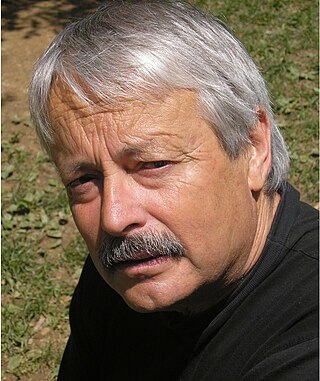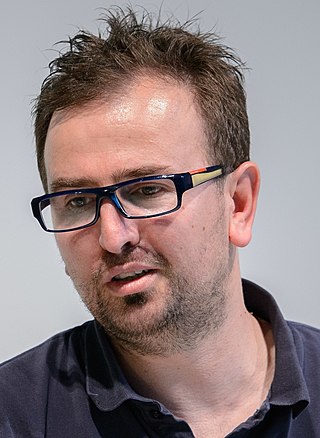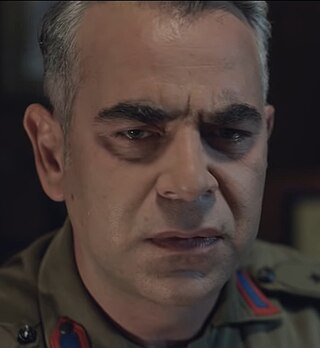
Bitola is a city in the southwestern part of North Macedonia. It is located in the southern part of the Pelagonia valley, surrounded by the Baba, Nidže, and Kajmakčalan mountain ranges, 14 kilometres north of the Medžitlija-Níki border crossing with Greece. The city stands at an important junction connecting the south of the Adriatic Sea region with the Aegean Sea and Central Europe, and it is an administrative, cultural, industrial, commercial, and educational centre. It has been known since the Ottoman period as the "City of Consuls", since many European countries had consulates in Bitola.

Nuri Bilge Ceylan is a Turkish director, screenwriter, photographer and actor. His film Winter Sleep (2014) won the Palme d'Or at the 67th Cannes Film Festival, while six of his films have been selected as Turkey's submission for the Academy Award for Best International Feature Film.

The culture of North Macedonia refers the culture of the Republic of North Macedonia, a country in Southeast Europe. Macedonian culture has contributed to the culture of the Balkans, and the wider culture of the European continent.

Zoran Erić was a Serbian composer based in Belgrade. He taught composition, orchestration, theater and film music at the Faculty of Music, University of Arts in Belgrade, Serbia.
Halit Refiğ was a Turkish film director, film producer, screenwriter and writer. He made around sixty films, including feature films, documentaries and TV serials. He is considered to be the pioneer of the National Cinema movement and the initiator of the production of TV serials in Turkey.

Slobodan Šnajder is a Croatian writer and publicist.

Goran Stefanovski was a leading Macedonian dramatist, screenwriter, essayist, lecturer and public intellectual. He wrote for the theatre, television and film, as well as pursuing a long academic career in teaching creative writing for the theatre and film.

Joakimfest is an annual international theatre festival held in Kragujevac, Serbia, at the Princely Serbian Theatre in the second week of October each year.

Jeton Neziraj is a playwright from Kosovo. He was the Artistic Director of the National Theatre of Kosovo and now he is the Director of Qendra Multimedia, a cultural production company based in Prishtina.

The Princely Serbian Theatre is the oldest theatre in Central Serbia. It is based in City of Kragujevac, the fourth largest city of Serbia. The theatre was founded in 1835 by Miloš Obrenović, Prince of Serbia. In the time when theatre was founded, Kragujevac was the first capital of the Principality of Serbia.

Foltin is a Macedonian band active since 1995. Their name comes from Karel Čapek's last novel Life and Work of the Composer Foltýn.
Ali Düşenkalkar is a Turkish Cypriot actor based in Turkey.
Pece Trajkovski – Brada is a Macedonian musician. He is the lead accordion / guitar / synth player and co-author of the band Foltin since 1999. As a Foltin member, so far, Brada worked on 10 studio albums, music for over 20 theater pieces, several film scores and plenty of live performances on festivals, events, clubs etc.

Istanbul Metropolitan Municipality City Theatre The theater was founded in 1934 in the Ottoman Empire period (1914) as Dârülbedayi. It was a theater company connected to the Istanbul Metropolitan Municipality budget in the name of IMM City Theaters in 1934.
Suna Selen is a Turkish actress of theatre, film and television. She has appeared in numerous plays at the Istanbul State Theatre.

Bülent Emin Yarar is a Turkish actor and theatre director.
Esra Ronabar is a Turkish actress.

Ragıp Savaş is a Turkish actor, singer and former sportsman known for his work on Valley of the Wolves: Ambush (2007), Where's Firuze? (2004) and Kuruluş: Osman (2019–2021).
Serhat Mustafa Kılıç is a Turkish actor and TV-radio presenter.

Yurdaer Okur is a Turkish film, television and stage actor.
This page is based on this
Wikipedia article Text is available under the
CC BY-SA 4.0 license; additional terms may apply.
Images, videos and audio are available under their respective licenses.














